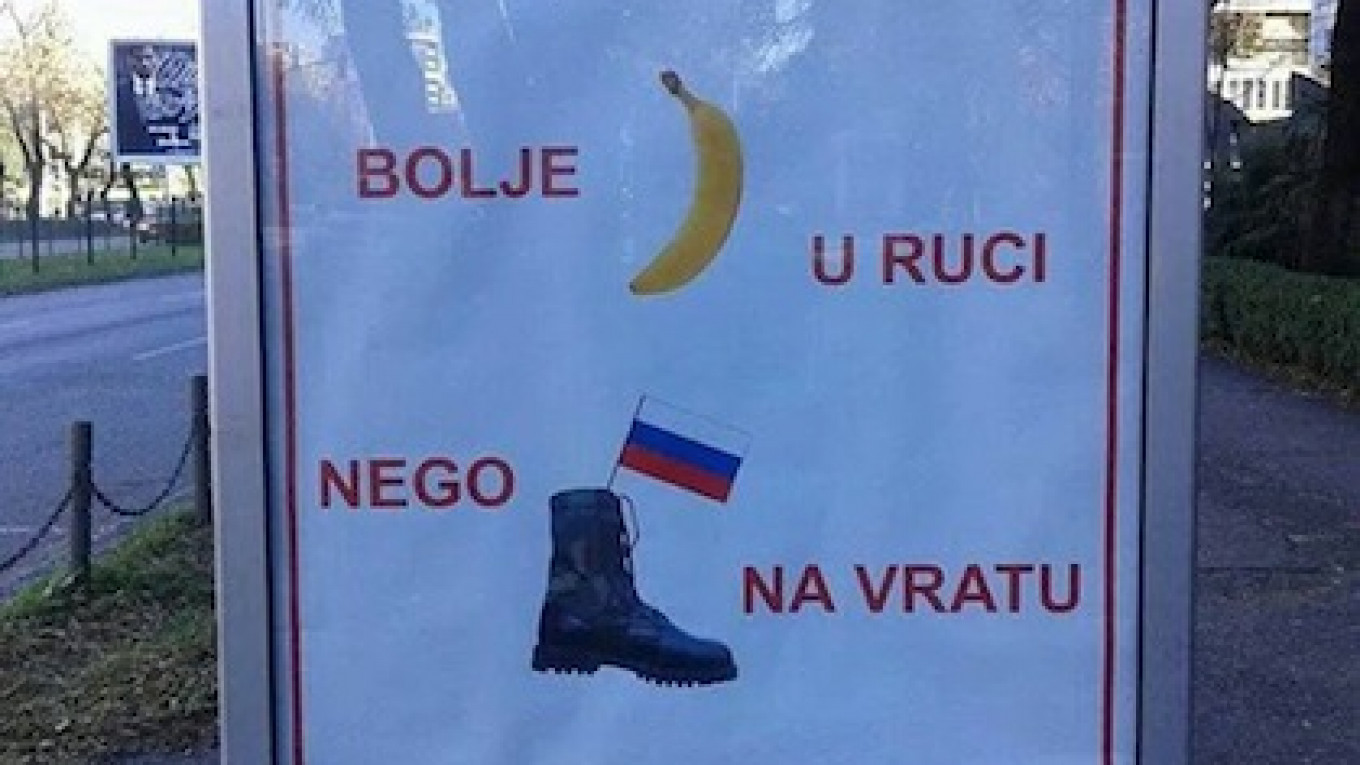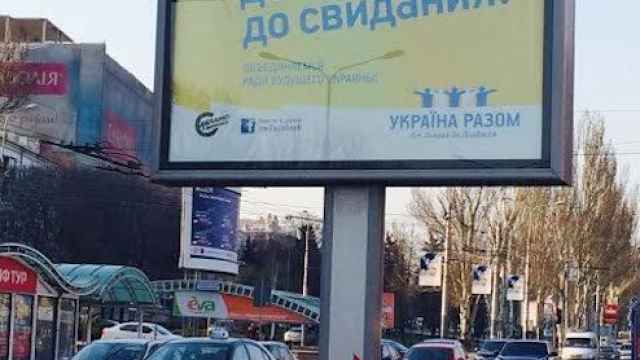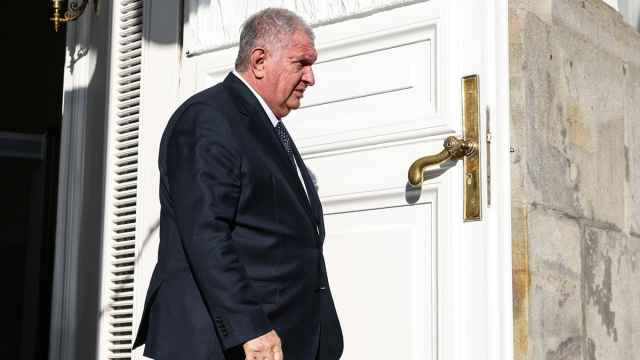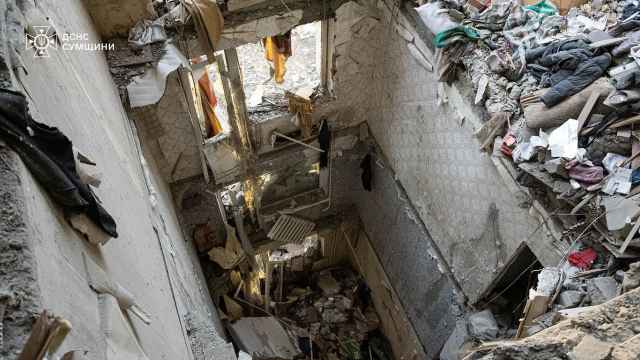Russia has protested to Montenegro over anti-Russian billboards that popped up this month in the small Adriatic republic bearing the NATO logo and rejecting the "Russian boot."
The billboards, signed "Montenegrin Patriots," appear to allude to tensions between an influx of Russian money into the former Yugoslav republic and its hopes of joining the European Union and NATO.
The Montenegrin foreign ministry confirmed it had received a protest note from the Russian Embassy on Nov. 19, shortly after the billboards appeared.
It is not known who commissioned them. The NATO logo originally featured on the posters, but later appeared to have been removed.
Some refer to a number of controversial and stalled Russian investment projects, part of a flow of Russian money, home buyers and tourists after Montenegro voted for independence in 2006.
The small Balkan country of some 680,000 people is now a candidate to join the EU and NATO.
One billboard quotes late Montenegrin-born, Yugoslav writer and politician Milovan Djilas as saying: "Russians have never been friends to the Montenegrins; we've always been bargaining chips to them."
Another alludes to a reported comment last year by Russia's Ambassador to Serbia, Alexander Cepurin, in which he was quoted as likening Montenegro to a monkey, lining up to join NATO "in the hope of getting a banana."
"Better a banana in the hand than a Russian boot in the neck," read the billboard.
Montenegro's Ministry for Foreign Affairs and European Integration said in an email that it had replied to the Russian Embassy saying the messages on the billboards were "absolutely unacceptable" and in no way reflected state policy.
Serbia, which Montenegro split from in 2006, has sought to maintain warmer relations with Russia. Unlike Montenegro, it has refused to join European sanctions on Moscow over the Ukraine conflict despite also seeking membership of the EU.
A Message from The Moscow Times:
Dear readers,
We are facing unprecedented challenges. Russia's Prosecutor General's Office has designated The Moscow Times as an "undesirable" organization, criminalizing our work and putting our staff at risk of prosecution. This follows our earlier unjust labeling as a "foreign agent."
These actions are direct attempts to silence independent journalism in Russia. The authorities claim our work "discredits the decisions of the Russian leadership." We see things differently: we strive to provide accurate, unbiased reporting on Russia.
We, the journalists of The Moscow Times, refuse to be silenced. But to continue our work, we need your help.
Your support, no matter how small, makes a world of difference. If you can, please support us monthly starting from just $2. It's quick to set up, and every contribution makes a significant impact.
By supporting The Moscow Times, you're defending open, independent journalism in the face of repression. Thank you for standing with us.
Remind me later.






